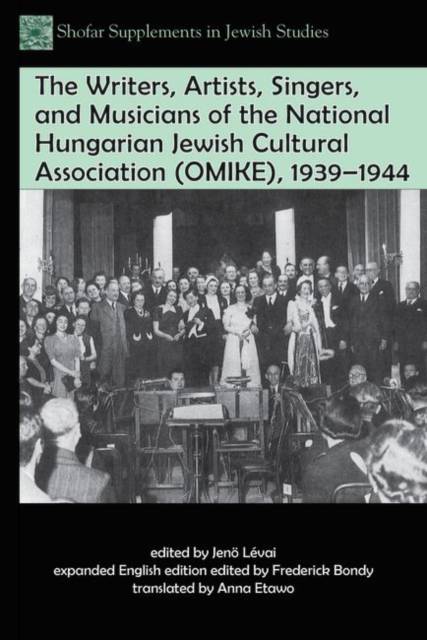
- Retrait gratuit dans votre magasin Club
- 7.000.000 titres dans notre catalogue
- Payer en toute sécurité
- Toujours un magasin près de chez vous
- Retrait gratuit dans votre magasin Club
- 7.000.0000 titres dans notre catalogue
- Payer en toute sécurité
- Toujours un magasin près de chez vous
The Writers, Artists, Singers, and Musicians of the National Hungarian Jewish Cultural Association (Omike), 1939-1944
67,95 €
+ 135 points
Description
In May 1938, Hungary passed anti-Semitic laws causing hundreds of Jewish artists to lose their jobs. In response, Budapest's Jewish community leaders organized an Artistic Enterprise under the aegis of OMIKE Országos Magyar Izraelita Közművelődési Egyesület (Hungarian Jewish Education Association) to provide employment and livelihood for actors, singers, musicians, conductors, composers, writers, playwrights, painters, graphic artists, and sculptors. Between 1939 and 1944, activities were centered in Goldmark Hall beside the Dohány Street Synagogue in Budapest. Hundreds of artists from all over Hungary took part in about one thousand performances, including plays, concerts, cabaret, ballet, operas, and operettas. These performances appealed to the highly cultured Budapest Jewish community, ever desirous of high-caliber events, particularly under oppressive conditions of the time. Art exhibitions also were held for painters, graphic artists, and sculptors to sell their creations. Lévai's 1943 book (with new, additional chapters by noted historians and musicians) is the core of this expanded edition and provides interviews with individual artists who recall their early lives and circumstances that led them to join the Artistic Enterprise. The book records the technical functioning, structure, and operation of this remarkable theater and concert venue. It provides fascinating details about those who worked behind the scenes: répétiteurs, hair stylists, and personnel involved with costumes, lighting, and scenery. Because the stage was small, clever choreographic and scenery improvisation had to be made, and the stagehands were clearly up to the task. Since these artists were not allowed to perform before the general public or advertise with posters on the streets, the book describes special means devised to overcome these difficulties and bring Jewish audiences into the theater in large numbers. Lastly, the book carries the theater's story up to Sunday morning, March 19, 1944, a day of infamy, when the German army marched into Hungary.
Spécifications
Parties prenantes
- Editeur:
Contenu
- Nombre de pages :
- 290
- Langue:
- Anglais
- Collection :
Caractéristiques
- EAN:
- 9781557537645
- Date de parution :
- 15-12-16
- Format:
- Livre broché
- Format numérique:
- Trade paperback (VS)
- Dimensions :
- 152 mm x 226 mm
- Poids :
- 1428 g

Les avis
Nous publions uniquement les avis qui respectent les conditions requises. Consultez nos conditions pour les avis.





